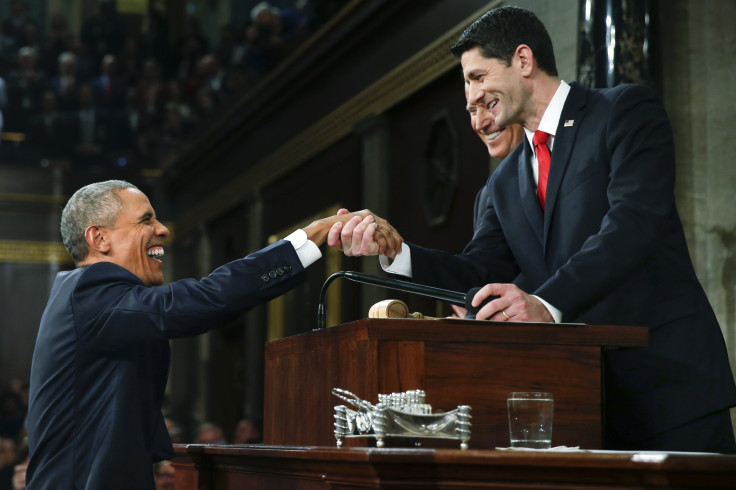Scalia Replacement: Speaker Paul Ryan Joins Republican Opposition To Obama Supreme Court Nominations

Republican Speaker of the House Paul Ryan lent his support to the GOP plan to delay voting on any nomination President Barack Obama may put forth to replace Supreme Court Justice Antonin Scalia, who died Saturday. Almost immediately after Scalia’s death was announced, Republicans in Congress and on the 2016 campaign trail began to argue that the next president is the one who should nominate a new justice.
“The #SupremeCourt is not an extension of the White House,” Ryan wrote on Twitter Tuesday, weighing in on the back-and-forth between Democrats and Republicans. “Congress, as an equal branch, has every right NOT to confirm someone.”
Democrats have noted that nominating a justice to take Scalia’s place is an explicit constitutional role of the presidency and the executive powers it shoulders. Republicans have the ability to delay a vote on a Supreme Court nominee, since they hold a majority of the seats in the Senate and Democrats would need to bring together at least 60 votes to overcome a potential filibuster. While filibusters are included in Senate rules, they are not a constitutionally protected tactic and could be changed at the will of the Senate. In fact, Democrats changed rules to eliminate the 60-vote threshold for federal judicial nominees below the Supreme Court.
This president has tried everything he can to empower the Executive branch at the expense of the Legislative one. https://t.co/V5seIP4eG6
— Paul Ryan (@SpeakerRyan) February 16, 2016
This isn’t the first time Republicans have been openly and indiscriminately hostile toward Obama policy or judicial nominees, but delaying filling a Supreme Court seat is seen as one of the more extreme positions taken to date. The GOP is hoping it can show its base that it is serious about its anti-Obama stance, while it seems likely that the White House and Democrats will use a blocked nominee to portray the GOP as unwilling to work in good faith on important matters.
© Copyright IBTimes 2024. All rights reserved.












